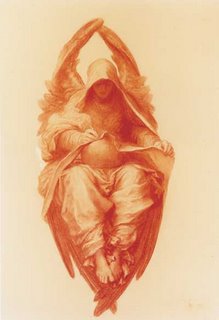We often hear about 'the way' that has to be followed to reach spiritual heights. There are as many paths and sampradayas as there stars in the night sky - and this is only in the wider folds of Hinduism, not to mention the many other religions and folk traditions in the world. Which then is the 'right' path? The followers of the various sampradayas vehemently argue that their own is the true path. This attitude perhaps starts because of their intense belief and exclusive devotion to their own chosen path, and in that context is perhaps acceptable. A similar pattern is visible if we look at the various puranas and upa puranas.
The Vaishnava (concerned mainly with Vishnu) puranas present stories which convey to the reader the all pervasiveness of Vishnu. To arrive at this end, they would often appear to belittle the other Gods particularly Siva, and have story lines where many prominent Gods of the Hindu pantheon struggle with and face defeat at the hands of Vishnu. The Shaiva puranas on the other hand would argue to emphasize the importance and superiority of Siva over the other Gods. The stories there would often portray Vishnu and other Gods suffering as a result of the wrath of Siva. The same pattern is visible in the Ganesha, Skanda, Vayu and other puranas. In all the puranas, the chief deity extolled in the stories is often shown to be superior and in control of the other deities. To make matters worse (or more interesting) the various puranas often convey the same story or set of events with a completely different emphasis or angle. In the modern world we are well used to this tactic and we might even expect the corporate giants or politicians and people of that ilk to put a favorable 'spin' on the story to further their ends. But would the great pundits and rishis of yore have used such a cheap and artificial tactic to stress their point? And if that were the case, what would become of the esteem and regard with which we view the puranas? From the stories it becomes as if not all of them can be true (as they are contradictory), and if they are not all true, are some true? Or are they all false? These are the questions that will trouble the minds of those trying to understand the truth and dharma through the media of the puranas.
The great sages and even the Paramacharya of Kanchi are of the view that the difference in the puranas does not indicate a 'falseness'. Rather, they urge the individual to understand the real reason behind the many contradictions and the differing emphasis on the same or similar events. They say that the stories in the various puranas were often intended to bring about a sense of surrender and intense devotion to the chosen deity (Siva, Vishnu or other) and to bring about that all exclusive devotion, the stories had to be in such a way as to make the chosen deity supreme and beyond others. They also urge us to find the many stories in the same puranas that show or speak of the unity among the different deities (eg. Rama praying to Siva before crossing over to Lanka, Siva coming as Hanuman to help Rama in his task, etc). And on careful study we find that there are many stories that speak of their connectedness too.

In the Lalitha Sahasranama, there are many names that describe beautifully and exceptionally the underlying unity of Lalitha and Siva and this entire universe. It is inspiring and uniquely expansive to feel and meditate on this oneness, it is pure joy, sheer bliss! There is a nama of the Devi that is Nirbheda (without difference) - why is She without difference? Does that mean there is nothing apart from Her or does it represent a different kind of difference too? Lakshmidhara in his commentary expresses that since the Devi is neither connected with anuyogitva (for) nor is She concerned with pratiyogitva (against) to the mutual non-existence, She is said to be nirbedha or without difference. That is, She is without bias and is devoid of all differences.
On realizing this non difference the dual knowledge (of the pair of opposites) is destroyed and the 'real' knowledge is firmly rooted. This aspect of the Devi is conveyed by the next nama Bhedanasini (destroyer of difference).
Another nama Sarvamayi (as All) drives this home further. Without non - separation there cannot be unlimited dominion, or omnipresence which is an essential attribute of the Supreme. The term sarva (all) here includes all the tattvas (principles) from earth to Siva. It includes the two hundred and twenty four worlds (bhuvana) and is represented also by the fifty letters (akshara). Our altogether human attitude of perceiving difference where none exists is a cause for much confusion often leading to war over such matters. And it is an unfortunate habit to posses as more often than not, it reduces the infinite beauty of this world and the subtle and precise balance with which everything is connected.
Sri maatre namaha.

0 comments:
Post a Comment